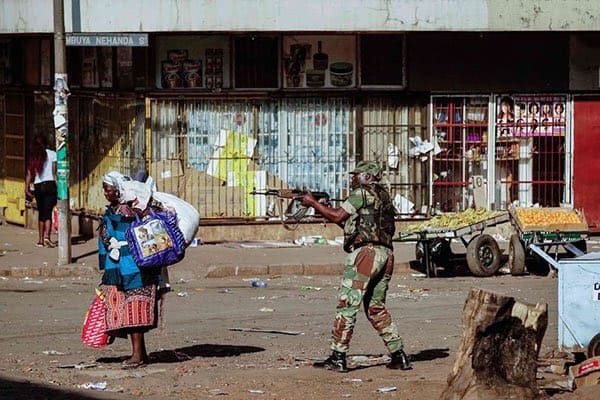ZwNews Chief Correspondent
President Emmerson Mnangagwa’s killing commission is currently down to business, with more and more witnesses testifying.
With the opening session had been marred by attempts by police and state agents to bar private media from covering the proceedings, the alleged compromised nature of the Commission is feared to have a bearing on the outcome.
Since its Institution, many have criticised its composition, as most of its commissioners are alleged pro-ruling party.
As if that was not enough, the terms of reference given by President Mnangagwa on areas to be looked at by the commission, leaves out key elements which matter most.
Mnangagwa pointed out that he wanted information on who master-minded the protests, how it was executed, and gave no reference to the actual killing of civilians by armed soldiers.
Be that as it may, in the reminiscent, of the Constitutional Court, where opposition lawyers were quizzed with an antagonistic stance, the commission’s facilitators seem to have learned one or two tricks from the Luke Malaba Con Court bench.
According to analysts, the same seem to prevail in the sessions of commission so far, those taking a slant towards blaming soldiers for killing civilians were being fiercely grilled, as the state seem not interested in hearing testimonies on the army’s bad behaviour.
Some critics, say even when the state media is reporting on the issue, it never mentions or attributes the killings to the soldiers. They say the narrative by the public media is that people died of violence and not of gun shots.
One analyst speaking on the side-lines of the inquiry session, told this paper that the commission seems to have taken the same narrative.
One Harare resident who attended the commission’s second session said the inquiry team should be neutral and quiz all witnesses in the same tone.
“The witnesses who brought the issue incriminating the army are grilled, asked questions like how sure were they that it was the army who fired shots, or to define soldiers’ shooting positions, blow by blow, of the incident that happened in the full glare of international media.
“In times of danger most people may not have the luxury of trying to scrutinise more details, for they would be running for dear life more so in face of the soldiers who were determined to kill,” the resident who only identified himself as Nophias.
He added that, the other evidence being sought by the team are captured on camera, and pictures and videos are everywhere for them to see.
Meanwhile, responding the recent barring of journalists, MISA-Zimbabwe calls on the commission to be objective, and avoid secretiveness in the manner it was conducting its mandate.
Commenting on the stance of the Commission, over the antagonistic tendency towards some witnesses, political scientist, Hazel Chimombe, says there should not be intimidation, when people express themselves on what they would have witnessed on the day.
“People should be given the floor to testify on what they saw, whether positive or negative.
“The commission should not take any sides, if people are to freely testify on what transpired,” she said.
She added that all those testifying should be protected from future victimisation at the hands of over zealous state agents. She pointed out how one witness told the commission that she feared testifying against police, for fear of being tracked later.













